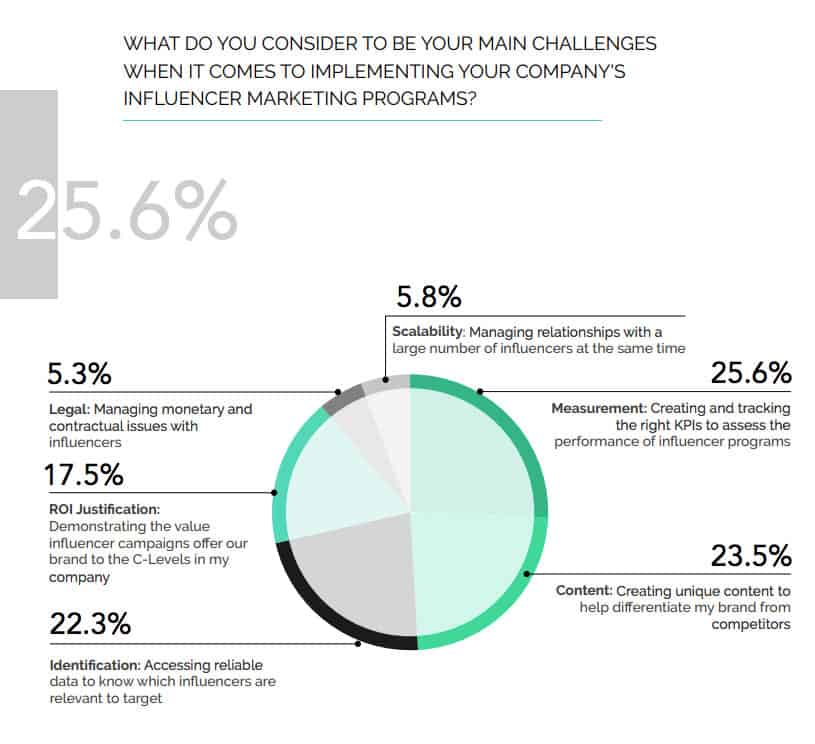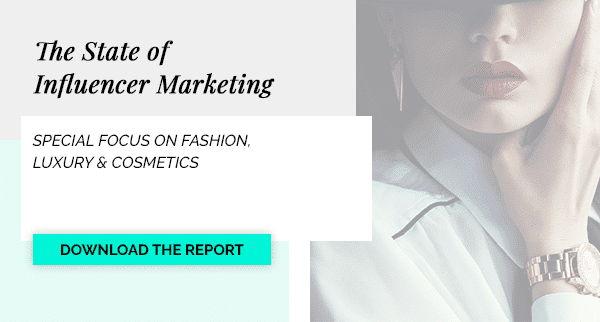For our 5th annual State of Influencer Marketing Report, we surveyed over 600 professionals in the fashion, luxury, and cosmetics industries, collecting a comprehensive data analysis of the current landscape of influencer marketing. For the report, we ran a series of interviews with selected industry professionals, in order to collect insider information on how they view influencer marketing, which we will be sharing over the coming months in our #StateofInfluence series. The series kicks off with Jennifer Powell, who is described as the “influencer’s influencer” by the Daily Front Row and is a notable player in the world of influencer marketing.
Jennifer was a model agent for over 20 years, working as the head of the Women’s Board at Next Models in Los Angeles for 13 of those years, then expanding into the world of influencer management. Powell was the first agent to turn blogs into immediately profitable businesses by orchestrating collaborations and endorsements with fashion and lifestyle brands.
Powell’s successes in the influencer marketing space led her to start Jennifer Powell, Inc in April 2017, where she focuses on influencer management and brand building as well as consultation and creation of influencer marketing strategy for brands. Her business manages the likes of Bryanboy, Nikki DeRoest (Hello To Beauty) and Julie Sariñana as well as the creator of the first CGI supermodel, Shudu. We spoke with Powell about her experiences in influencer marketing, how to achieve successful partnerships, and what the future for the marketing practice looks like.
#StateofInfluence: An Interview with Jennifer Powell
Can you tell us a bit about your trajectory and how you started working with social media influencers?
It was a happy mistake. I was a model agent for years and Rumi Neely from FashionToast.com was sent to me at Next by a photographer. She was shooting editorial imagery for her “photo diary” and linked out the product she was wearing to E-commerce sites. From there, the product started selling out. She knew there was value in being able to sell products and it made sense to me. Since I spoke to brands all day selling models, I asked them to consider working with this alternative type of talent where you could trace sales. I applied model day rates to what Rumi was doing and pretty soon the brands were giving it a try. About a year after I started handling Rumi, I brought on Chiara Ferragni from the Blonde Salad, then Kristina Bazan, Sincerely Jules, Gala Gonzalez, and Danielle Bernstein and it grew into a whole new revenue stream.
According to you, how has influencer marketing evolved over the past few years?
It’s now considered a necessary part of a marketing strategy whereas even 3 years ago I was still trying to convince brands why they should use influencers.
Do you think influencer marketing will continue being as effective in the near future?
Absolutely. Platforms might change or evolve but influencer marketing isn’t going anywhere.
What is the key to maintaining authenticity when working with opinion leaders?
Be thorough and thoughtful when identifying the people that align with your brand - make sure it's not a choice based on numbers but that there is a true brand fit. Then, let the opinion leader create. Give them the goals and any parameters around the campaign but don’t micromanage content. They are being hired to share their point of view.
From your experience former experience, what do brands typically look for in an influencer when engaging a collaboration?
Brands typically look at content creation, then numbers and data - engagement, swipe ups, etc. They ask for Instagram analytics and make sure that the demographic makes sense and aligns with whatever their priority is for the particular campaign.
What defines a great influencer marketing campaign?
It really is the correct alignment for the brand and the influencer. One that is a true organic brand fit, that surpasses campaign goals and makes both parties (both the brand and the influencer) want to partner again in a meaningful way.
Measurement is still a challenge for brands: What factors do you take into account to judge whether influencer campaigns were successful?
Because I'm not on the brand side, I only experience the influencer’s version of a successful campaign. So, my version of campaign success comes with collaborative, creative and timely execution of campaign deliverables, and seeing that the goals of the brand’s campaign are met while maintaining the influencers clear perspective and voice (high engagement helps too!). Then, if the brand wants to talk about further engaging in a longer term partnership then I know that we have clearly shown success from the data on the brand side as well.

What challenges do you foresee for fashion, luxury, and cosmetics brands in terms of influencer marketing?
I think that there is a question of authenticity now that the mass audience understands that influencers are being paid to work with brands. Brands need to focus on sincere relationship building with influencers and go deeper with them by engaging in more ways than just a few campaigns here and there. Authentic relationships need to be created so that the audience continues to build trust and buy-in. I don’t think that this is limited to just fashion and beauty but all industries that are selling products to the general consumer.
Explore more
If you want to learn more insights and about the most up-to-date information on influencer marketing, be sure to download your full copy of The State of Influencer Marketing report below:

